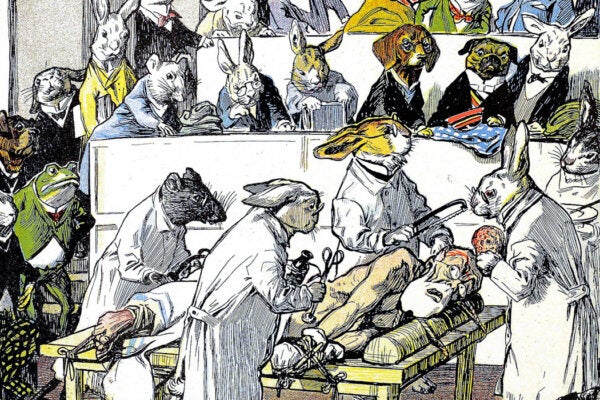Geishas for Enlightened Motherhood
In the Meiji period, geisha embraced the nation’s modernizing project, helping to improve education for women and promoting a western-style domestic ideal.
Abraham Lincoln’s Labor Theory of Value
Abraham Lincoln was no Marxist, but his ideas about the relationship of labor and capital mirrored Marx’s in some ways—albeit with a rural American flavor.
The Numbers vs. the Lottery
Between the 1960s and 1980s, state governments created lotteries to supplant illegal gambling operations that brought revenue to marginalized communities.
Attacking Italians in Louisiana
Italian immigrants had no qualms about working and living alongside Black Americans, which made them targets for violence by white vigilantes in Louisiana.
Buddhist Pacifists at War
In the early centuries of Vajrayāna Buddhism in India, practitioners worked to reconcile the religion’s teaching of nonviolence with the realities of warfare.
The French Historian Who Invented the Olympics
Pierre de Coubertin harnessed an enduring fascination with ancient Greece to create a new institution that blended national pride with global unity.
Black Freedom and Indian Independence
Activists including W. E .B. Du Bois in the United States and Lajpat Rai in India drew connections between Black American and Indian experiences of white rule.
The Georgia Peach: A Labor History
The peach industry represented a new, scientifically driven economy for Georgia, but it also depended on the rhythms and racial stereotypes of cotton farming.
A Prehistory of Zoom
Concerns about privacy and pressures regarding the physical appearance of women and their homes contributed to the failure of AT&T’s 1960s Picturephone.
What’s a Mental Health Diagnosis For?
Following the publication of the DSM-5, mental health professionals debated the expansion of “mental illness” to include normal parts of the human condition.
A Utopia—for Some—in India
In 1968, an international group led by an Indian freedom fighter and a French spiritualist formed a utopian—and problematic—community called Auroville.
Performing as “Red Indians” in Ghana
In Ghana, asafo and Fancy Dress traditions draw on a stereotypical but much-admired figure inspired by the nations of the North American Great Plains.
The Psychological Problems of Modern Warfare
As military technology improved in the nineteenth century, military strategists put heavy emphasis on “moral factors” in preparing troops for battle.
The Huts of the Appalachian Trail
Scattered along the Appalachian Trail, “primitive huts” built in various styles offer shelter, social space, and evidence of the trail's long history.
Who Took the Cocaine Out of Coca-Cola?
The medical profession saw nothing wrong with offering a cocaine-laced cola to white, middle-class consumers. Selling it to Black Americans was another matter.
The Joy of Burglary
In the early 1900s, a fictional “gentleman burglar” named Raffles fascinated British readers, reflecting popular ideas about crime, class, and justice.
Creating Communities for Disability Activism
In the 1960s, young disabled people found each other at camps and colleges, creating ever-expanding networks for challenging discrimination.
The Novels that Taught Americans about Abortion
Twentieth-century novels helped readers to learn about the practicalities of abortion as well as the social and moral questions around the procedure.
Political Corruption in Athens and Rome
Bribery was widespread in the ancient world. That didn’t mean it was considered acceptable.
Haunted Soldiers in Mesopotamia
In ancient Mesopotamia, many medical disorders were attributed to ghosts, including mental problems faced by men who had spent years at war.
How Government Helped Birth the Advertising Industry
Advertising went from being an embarrassing activity to a legitimate part of every company’s business plans—despite scant evidence that it worked.
The Dangers of Animal Experimentation—for Doctors
Nineteenth-century opponents of vivisection warned that the practice could make researchers and physicians callous toward all living creatures.
The Power of the Veil for Spanish Women
In sixteenth-century Spain, veiling allowed women to move freely through cities while keeping their identities private.
Elephant Executions
At the height of circus animal acts in the late nineteenth century, animals who killed their captors might be publicly executed for their “crimes.”
The Diverse Shamanisms of South America
In Brazil, Indigenous people and city-dwellers of all backgrounds mix various shamanic practices, including rituals imported from North America and elsewhere.

























